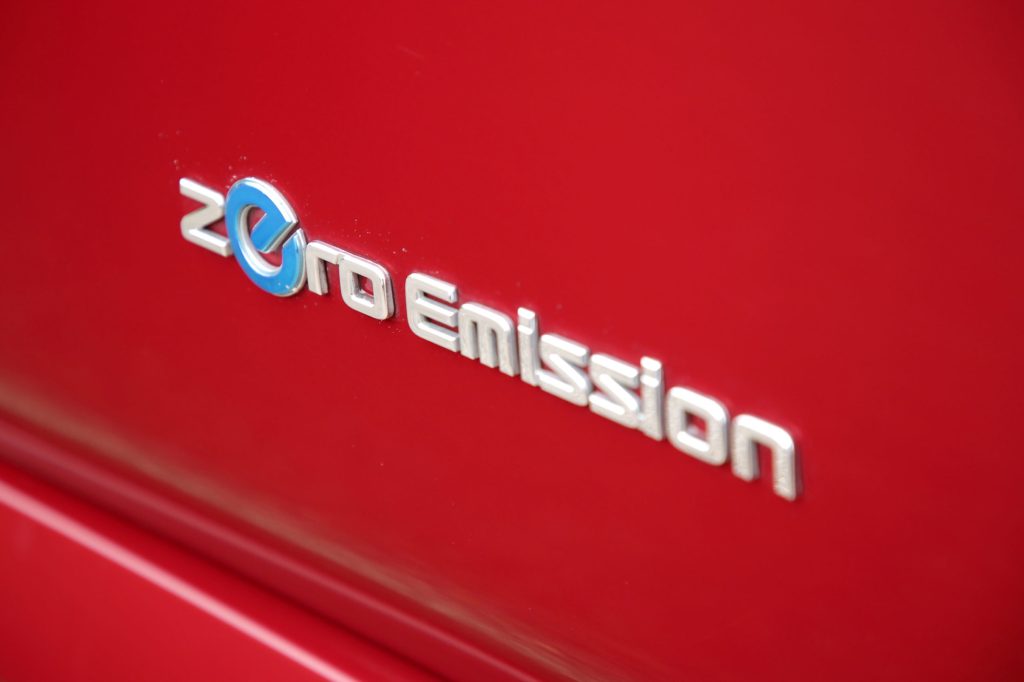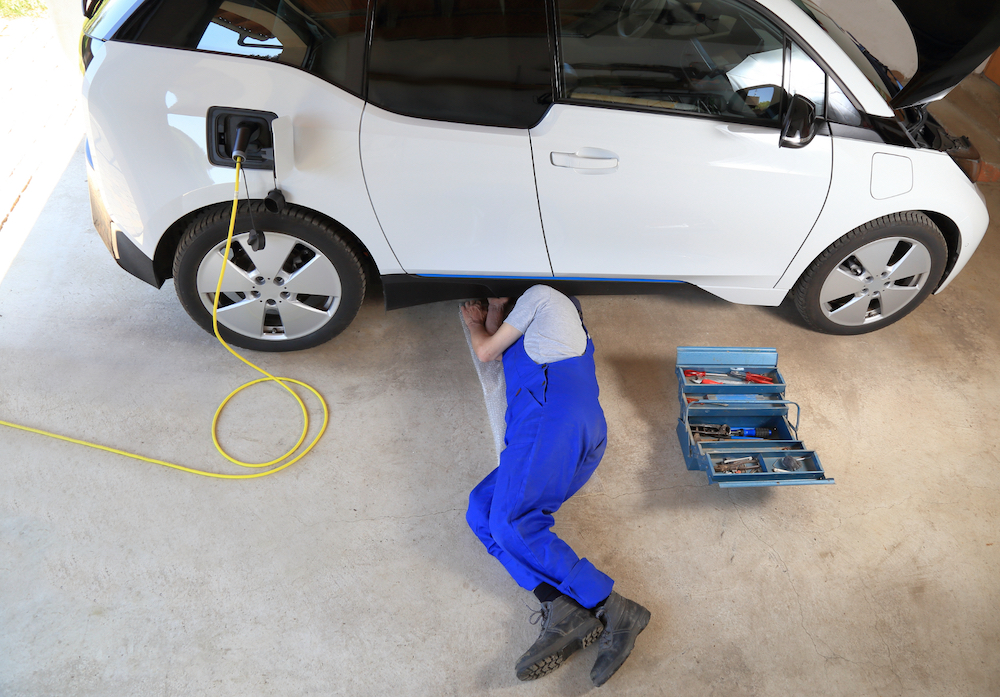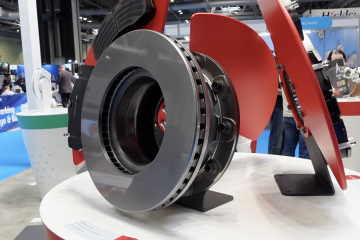The UK government is delaying the new-car petrol and diesel ban from 2030 to 2035, giving internal-combustion engine technology a stay of execution in the country.
The push back does not change the date that the UK will go to zero-emission only new-car sales. The original plan was for a transitional period, with hybrid and plug-in hybrids still on sale for the intervening period. Now, however, all vehicles capable of producing CO2 from the tailpipe will be banned from new-car showrooms at the same time.
The petrol and diesel ban does not extend to the used-car market, meaning the technology will remain in the UK car parc for years to come. With this continuing to age, it means an extended stay of execution for internal combustion engines.
The changes have led to concerns about the instability of governmental support for the automotive market. The new delay in the petrol and diesel ban adds to worries around a lack of agreement over a Rules of Origin deadline for 2024, and the lack of a promised Zero-Emission Vehicle (ZEV) Mandate that is due to come into force in less than 100 days.
Petrol and diesel ban change not instilling confidence
Speaking at the recent SMMT Electrified conference, Mikes Hawes, chief executive of the Society of Motor Manufacturers and Traders (SMMT), pointed to these issues and called on the government for clarification.
‘We still do not even know what vehicles can be sold from 2030. Uncertainty creates doubt, and doubt stokes negativity,’ he stated. ‘If you think about what we are trying to do, we need to get the consumers behind us. The infrastructure transition accelerated the investment climate. If you were to turn around now and say, no, we are not going to do that, well we cannot. You cannot do that for environmental progression. You cannot do it for the industry.’
Following the prime minister’s announcement on extending the petrol and diesel ban, Hawes stated: ‘The automotive industry’s commitment to a zero-emission new car and van market remains unchanged. Net zero cannot be achieved without this sector’s decarbonisation. The prime minister has confirmed that a mandate to compel the sale of EVs – the single biggest mechanism to deliver net zero – will be published shortly, starting in January 2024.
‘Manufacturers will continue to put innovative new models on the market, but consumers need encouragement to buy more than ever. Today’s announcement must be backed up with a package of attractive incentives and measures to accelerate charging infrastructure to give consumers the confidence to switch. Carrots move markets faster than sticks.’
Electric vehicle training still required
The new-car petrol and diesel ban deadline shift has the potential to undermine the work being done by the automotive industry to highlight the benefits of zero-emission motoring.
“There is now a serious risk that businesses and individuals will take their foot off the pedal and the great success the IMI has had in engaging the industry to commit to investment in EV skills will lose momentum,” commented Steve Nash, CEO of the Institute of the Motor Industry (IMI).
“The deadline shift also demonstrates a distinct lack of understanding of the pressures a multi-technology vehicle parc places on the automotive workforce.
“Upskilling that has already taken place has come at a financial strain which businesses and individuals have justified because of the expected increased EV adoption. Even if EV uptake slows over the next few years, there will still need to be a concerted focus on upskilling to meet the needs of the growing parc as well as other emerging technologies such as connected and autonomous.”

Simon King, Interim CEO, Autotech Group, also reacted to the petrol and diesel ban extension. “During his speech, The Prime Minister commented that, as a country, we need to strengthen the automotive industry,” he commented. “For several years AutotechTraining has highlighted the need for greater education and training on electric vehicles.
“EV training is not purely for the vehicle technicians who are responsible for repairing and maintaining them, but anyone who works or operates them, including the customer who drives their new EV off the forecourt, needs educating.”
Government support is critical
Extending the new-car petrol and diesel ban gives the UK’s automotive industry more time to prepare for the country to switch to zero-emission only motoring. More needs to be done to ensure the public charging infrastructure is ready, and that consumers are prepared and understand the difference in electric-vehicle ownership.
The Independent Garage Association (IGA) has stated that it welcomes the approach, allowing more time to prepare for the challenge. It also means the price of EVs can be addressed, bringing them in line with petrol and diesel models.
Responding to the announcement on the new-car petrol and diesel ban from 2030 to 2035, Stuart James, IGA Chief Executive, said: “This represents a reality check that the infrastructure required to support wholesale EV adoption in the UK is currently lagging behind where it would need to be, had the 2030 ban remained in place.”
“In the current challenging economic climate, to impose the high cost of new electric vehicles on businesses and consumers, would be a step too far, so pushing back the petrol and diesel ban date 2035 is the right thing to do.”
“To ensure that the new 2035 is achieved, there needs to be government support, not only for the required infrastructure, but also for upskilling of staff across the independent automotive sector, in order to provide consumers with the confidence that making the change to electric vehicles, is backed up with an accessible network of local, competent garages to meet the changes in their motoring needs.”

Andy Hamilton, CEO at LKQ Euro Car Parts, added that more needs to be done to ensure the charging point infrastructure is ready for the petrol and diesel ban. He also called for government support in the transition, especially for businesses that need to invest in order to be ready for zero-emission models.
“Some independent garages have struggled to grapple with the cost of retooling and upskilling staff to provide a full service for EV motorists,” he stated. “This announcement could provide light relief, giving garages more time to raise the necessary capital to effectively invest in the transition.
“But investing sooner rather than later will still be important for garages to retain customers making the switch to a plug-in. Government support will be important for this journey, as will garages’ communication with new and existing customers about their EV capabilities.
“Whether the petrol and diesel ban date is 2030 or 2035 may be beside the point. What we have lacked over the last few years is the strategic vision by Government to deliver on a challenge like the ICE ban. Without this direction, then 2035 risks representing a new arbitrary deadline.”
Ready to engage
The Independent Automotive Aftermarket Federation (IAAF) is calling on the government to listen to the concerns of the automotive aftermarket, and allow it to play a greater role in the consultations around zero emission motoring after the new-car petrol and diesel ban.
“Much has been made of the country’s triumphant road to an alternative-fuelled future, but the aftermarket, as the pinnacle of a circular economy that has been gearing up for a very diverse set of vehicles arriving on its shores for some time, yet again faces the goalposts being moved with little consultation,” commented Mark Field, Chief Executive of the IAAF.
“Everyone wants to do the right thing on climate change, but they do not want to be unfairly penalised and faced with changing their mode of transport to a more expensive alternative at a time when the cost of living is so high.
“The issue is that without certainty and regular consultation, the automotive industry cannot appropriately plan for the future, whether that’s powered by petrol and diesel, electricity, or another alternative fuel. The petrol and diesel ban delay proves that 2030 was simply a target, and in order to realistically achieve this then more discussion with the experts in service, maintenance and repair needs to happen.”
UK moving in line with Europe
The UK’s original 2030 petrol and diesel ban was one of the strictest in Europe. By delaying until 2035, the country is now falling in line with the EU’s plans, which call for a 100% reduction in CO2 emissions from vehicles by 2035, effectively banning all but BEV and FCEV cars from new-dealer forecourts.
‘This change will likely create further uncertainty for the industry; however, it does align the UK automotive industry with the EU, its largest international trading partner, and automotive dealers support this,’ said Sue Robinson chief executive of the National Franchised Dealers Association (NFDA).
The organisation surveyed its members in August of this year, and 60% of respondents supported an alignment with the EU market. Part of the reason for this may be the government’s lack of support in achieving the 2030 deadline, with no financial incentives in place for private buyers to switch to zero-emission vehicles.
‘Our survey indicates that UK franchised dealers, the customer-facing section of the industry, did not think that the UK’s 2030 target was achievable within the existing EV incentive framework and supports a move towards aligning the UK market with the European Union,’ added Robinson.
Mixed responses from carmakers
The petrol and diesel ban extension will have a big impact on carmakers as well. The mood amongst them is mixed, with some applauding the potential of developing new technologies without the pressure of a looming deadline, and others concerned that their current investments are being undermined.
Ford, which counts the UK as one of its biggest markets, has criticised the move. The carmaker announced the end of production of the UK’s best-selling vehicle, the Fiesta, at the end of last year, as it made way for a new line-up of electric vehicles by the time of the initial 2030 deadline.

“Ford has announced a global $50 billion (£40 billion) commitment to electrification, launching nine electric vehicles by 2025,’ stated Lisa Brankin, Ford UK chair. “The range is supported by £430 million invested in Ford’s UK development and manufacturing facilities, with further funding planned for the 2030 timeframe.
“This is the biggest industry transformation in over a century and the UK 2030 petrol and diesel ban target is a vital catalyst to accelerate Ford into a cleaner future. Our business needs three things from the UK government: ambition, commitment, and consistency. A relaxation of 2030 would undermine all three. We need the policy focus trained on bolstering the EV market in the short term and supporting consumers while headwinds are strong: infrastructure remains immature, tariffs loom and cost-of-living is high.”
Toyota was one of those with a positive view of the petrol and diesel ban extension. “We have consistently adopted a multi-path technology approach to reduce emissions as much as possible as soon as possible – based on our company’s principles of carbon is the enemy and providing mobility for all,’ a Toyota spokesperson stated. “We have spent billions developing and bringing to market hybrid electric, plug-in hybrid electric, battery electric and hydrogen fuel-cell electric powertrains to support the transition to greater zero emissions transport.
“The government announcement is welcome as it provides the clarity industry has been asking and recognises that all low emission and affordable technologies can have a role to play in a pragmatic vehicle transition. We believe this can also help relevant parties to further adapt including consumers, manufacturers, infrastructure, and energy providers.”
JLR too was positive about the extension to the petrol and diesel ban. In a statement, the carmaker said: “The announcement by the government on the revised end date for the sale of petrol and diesel cars in the UK is pragmatic and brings the UK in line with other nations, which we welcome.
“JLR’s commitment to be fully carbon net zero by 2039 is on track and we look forward to the building of the much-needed infrastructure which will help clients transition to an exciting electric future.”
Overall, there are both positives and negatives from the Prime Minister’s announcement on extending the petrol and diesel ban. While there is more time to adjust to zero-emission motoring, greenhouse gas emissions will not fall as fast as expected, while millions more petrol and diesel cars will take to the UK car parc, and remain in it for years after the new-car petrol and diesel ban comes into force.
What is clear, however, is that no matter when this ban takes effect, the aftermarket needs to be prepared for 2035, especially as this deadline has not changed.




You must be logged in to post a comment.